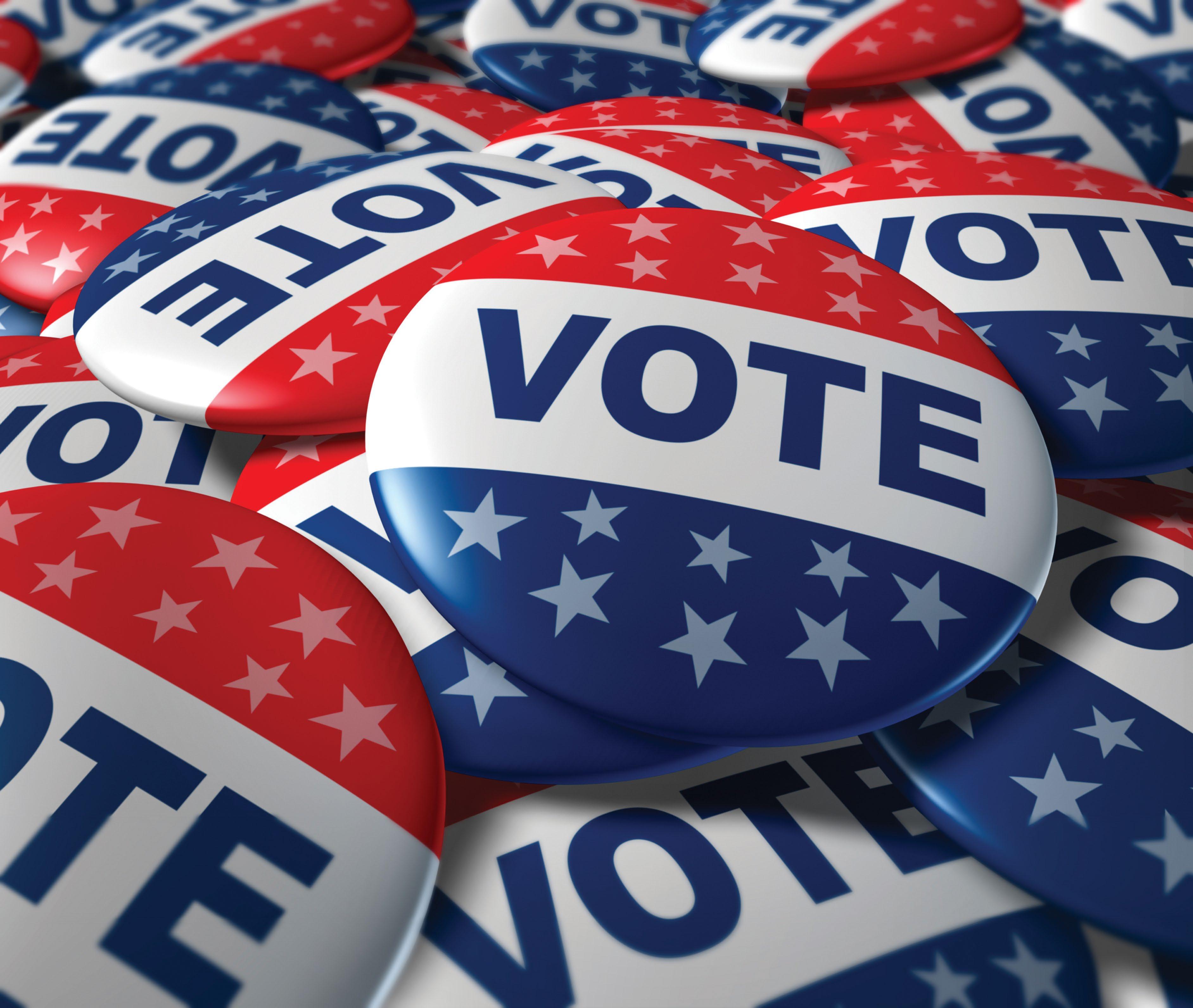
13 minute read
HEALTH CARE REFORM
Medicaid Expansion: TAKE IT
OR LEAVE IT by Debra Miller
When it comes to expanding Medicaid, states can take it or leave it.
That was part of the Supreme Court ruling on President Barack Obama’s signature initiative, the Patient Protection and Affordable Care Act. The decision prohibited the federal government from withdrawing all federal Medicaid funding if a state does not expand eligibility as set out under the law.
“The bottom line (for states) is pretty simple,” said Lisa Soronen, executive director of the State and Local Legal Center. “If you want to participate in Medicaid, it is all yours, but you have to follow the rules. If you don’t want it, you can walk away from it. Do what you were doing before. You don’t have to do anything more, you don’t have to do anything less.”
Soronen spoke to a Council of State Governments’ Medicaid Policy Academy the day after the historic Supreme Court decision on health care reform.
Soronen said the Medicaid ruling was probably the best of both worlds for states, leaving the decision to expand Medicaid eligibility to 133 percent of poverty up to individual states.
Tennessee Rep. Joe Armstrong called the decision tremendous for his state.
“It has put the decision of expansion in the lap of the governor and the legislature. They can’t blame the press, can’t hide behind a federal mandate,” he said. “If Tennessee does not expand Medicaid, it’s because of Tennesseans.”
Armstrong said Gov. Bill Haslam and the majority leadership of both legislative chambers came out against the Affordable Care Act during the 2012 legislative session. While the governor opposed expanded eligibility, he left $200 million on the budget table, unappropriated, just in case the law was upheld. Armstrong said this amount would be Tennessee’s share of expanded Medicaid.
Connecticut Rep. Betsy Ritter welcomed the decision that allows her state to move forward toward full implementation of the law “with the certainty that we have a strong federal partner.”
Connecticut already has taken advantage of Medicaid eligibility expansion. Ritter estimated that the state’s uninsured population—which now stands at 380,000 individuals—will drop by about 170,000 once the law is fully implemented in 2014. She said only about 3 percent of the state’s population will remain uninsured.
To Expand or Not
Although expanding Medicaid would help achieve the goal of having more people covered, some state officials are balking at growing the joint state-federal program.
“Every governor’s got two critical decisions to make,” Louisiana Gov. Bobby Jindal said in an interview on NBC. “One is do we set up these exchanges. And, secondly, do we expand Medicaid. And, no, in Louisiana, we’re not doing either one of those things.”
Jindal was referring to the health insurance exchanges states are required to have in place by Jan. 1, 2014.
He’s not alone in opposition to expanding Medicaid. Govs. Rick Scott of Florida, Phil Bryant of Mississippi, Nikki Haley of South Carolina and Scott Walker of Wisconsin all have said they won’t expand the program. Governors in Iowa, Missouri, Nebraska, Nevada, New Jersey and Texas also have indicated they are leaning against expansion, but are studying the issue.
On the flipside, Arkansas, Oregon and Rhode Island are leaning toward expansion, while California, Connecticut, Delaware, Hawaii, Illinois, Maryland, Massachusetts, Minnesota, Vermont and Washington have plans to expand the program, despite the
additional costs for states down the road. The federal government will pay 100 percent of costs for the expansion through 2020, then down to 90 percent thereafter.
“California will comply with the Medicaid expansion in the law, even though it will increase the state’s costs in future years,” California Gov. Jerry Brown said in a statement.
Health Insurance Exchanges
States also are required to set up health insurance exchanges, or markets for individuals and businesses to buy health insurance.
Some states are moving ahead on setting up those exchanges, while others have rejected federal grants to establish them.
Oregon Sen. Richard Devlin, co-chair of the Joint Ways and Means Committee, told CSG his state is in a somewhat unique situation and had planned to go ahead with an exchange regardless of how the Supreme Court ruled.
“The federal government invested a small fortune in our exchange and we should be up and running on time,” Devlin said. He said other states might want to look to Oregon’s health insurance exchange plans and duplicate them.
The exchanges also will offer federal subsidies to make health insurance more affordable to individuals and families between 100 and 400 percent of poverty. But that won’t help some people, according to Soronen and Stacey Mazer from the National Association of State Budget Officers, who also spoke at the CSG meeting. Individuals between today’s eligibility and 100 percent of poverty will be ineligible for both Medicaid and federal subsidies for health care insurance unless states expand Medicaid, Soronen and Mazer said.
That could be as many as 11.5 million Americans, according to a July 5 Urban Institute report. Approximately 1.4 million of those people in this newly created donut hole live in California, 1 million live in Florida and 1.3 million live in Texas, according to the report. Georgia, Illinois, Michigan, North Carolina and Ohio each have 400,000 to 500,000 residents in this income category.
Beyond Health Care
While states will be dealing with immediate effects, the Supreme Court ruling could impact other state-federal partnerships down the road.
Soronen called the Court’s finding of unconstitutional federal coercion of states a “huge legal development.” Since the 1930s, lower courts have taken up the coercion doctrine, but this was the first time the Supreme Court had limited federal strong-arming of states.
Rep. Bob Godfrey, majority leader of the Connecticut House and former chair of CSG, said the implications of the court ruling go beyond health care. Now, he said, “there are limits on the coercive power of the federal government vis-a-vis the states. In the long run, this will help with unfunded mandates handed down to the states.”
NEXT STEPS FOR STATES »
Affordable Insurance Exchanges
Affordable Insurance Exchanges, which are scheduled to begin operation Jan. 1, 2014, are designed to make buying health insurance easier and more affordable. States must have the U.S. Department of Health and Human Services approve, or conditionally approve, a health insurance exchange by no later than Jan. 1, 2013. If states choose not to establish an exchange, the federal government will operate one for them. According to Kaiser Family Foundation, only Alaska, Florida, Louisiana and New Hampshire have not received some form of establishment grants for the exchanges. States must say by Nov. 16, 2012, whether they are going to establish an exchange.
Medicaid
Effective Jan. 1, 2014, Americans who earn less than 133 percent of the federal poverty level—about $14,000 for an individual and $29,000 for a family of four—will be eligible to enroll in Medicaid if their state chooses to participate in the expansion. States will receive 100 percent federal funding for the first three years for this expanded coverage, which gradually decreases to 90 percent in 2020 and thereafter. Effective Jan. 1, 2013, state Medicaid programs must pay primary care physicians no less than 100 percent of Medicare payment rates in 2013 and 2014 for primary care services. The federal government will fully fund this increase.
Compacts
States can create and join interstate health care compacts beginning in 2016. Under such a compact, insurers can sell policies in any member state, but coverage must be at least as comprehensive and affordable as coverage through state exchanges.

MOVING AHEAD
MONTPELIER, VT.—Vermont Gov. Peter Shumlin addressed a meeting of health care advocates following the June 28 Supreme Court decision on the Affordable Care Act. Shumlin has been saying the state would push ahead no matter how the Supreme Court ruled. But the law remaining in place is expected to mean Vermont’s health overhaul will be helped by up to $400 million a year in federal tax credits and other subsidies. © AP Photo/Toby Talbot
Ilya Somin
George Mason University
Mimi Marziani
Counsel, Democracy Program Brennan Center for Justice New York University School of Law
POINT » Calling Mandate a Tax Undid Good Call on Commerce Clause
The Supreme Court’s 5-4 decision upholding the individual health insurance mandate gets many things right, but makes one serious error. Chief Justice John Roberts’ opinion rejects the federal government’s most important arguments for the mandate—that it is authorized by the Commerce Clause and the Necessary and Proper Clause.
These parts of Roberts’ reasoning, which are supported by four other justices, could have important implications for future cases. Yet Roberts then partially undid all his good work by ruling that the mandate is constitutional because it is a tax.
The chief justice begins by addressing the Commerce Clause, which gives Congress the power to regulate “Commerce … among the several states.” As Roberts puts it, “the power to regulate commerce presupposes
COUNTERPOINT »
Since the U.S. Supreme Court announced its historic decision to uphold the vast majority of the Affordable Care Act, American life has gone on: The Obama administration is now focused on the law’s implementation; opponents have turned back to the political system to voice their objections; and, according to a recent poll by the Kaiser Family Foundation, most of us are ready for naysayers to move on to other national problems.
But we should pause and consider the arguments underlying the final judgment.
Strands of the Court’s logic will almost certainly be used to challenge the scope of federal power in years ahead. The justices’ opinions reflect and guide our nation’s longstanding debate about the proper allocation of power between the U.S. government, the states and individual citizens. the existence of commercial activity to be regulated.” Yet the mandate “does not regulate existing commercial activity. It instead compels individuals to become active in commerce by purchasing a product, on the ground that their failure to do so affects interstate commerce.”
If Congress can “regulate individuals precisely because they are doing nothing,” it could impose pretty much any mandate of any kind. It could force people to purchase broccoli, cars or any other product. For similar reasons, Roberts also rejected the government’s argument that the mandate is authorized by the Necessary and Proper Clause. As Roberts explains, “(e)ven if the individual mandate is ‘necessary’ to the Act’s insurance reforms, such an expansion of federal power is not a ‘proper’ means for making those reforms effective.” The Constitution, he

Constitutionality of Federal Health Care Reform On June 28, 2012, the U.S. Supreme Court ruled the Patient Protection and Affordable Care Act—and the controversial individual mandate—to be constitutional. More than half the states challenged the law’s requirement that individuals be required to carry health insurance or face a penalty. Here, two constitutional scholars share their views on the ruling.
Unique Nature of Mandate Doesn’t Create Boundless Taxing Power
holds, does not “bring countless decisions an individual
The Court invoked two constitutional arguments with regard to the individual mandate.
The Commerce Clause: In two separate opinions, five justices agreed that Congress’ power to regulate interstate commerce could not justify the requirement that everyone obtain health insurance—the controversial individual mandate. Both decisions rest on an alleged distinction between Congress’ broad authority to regulate existing economic activity versus its inability to create commerce by forcing inactive participants—like the uninsured—into the marketplace.
This activity/inactivity theory places a bizarre restriction on congressional power, one that—as I have argued in the past—has no support in previous case law. Moreover, virtually all of us require medical attention at some point, so it defies common sense to maintain that
could potentially make within the scope of federal regulation, and … empower Congress to make those decisions for him.”
Unfortunately, the chief justice ultimately empowered Congress to do exactly what he said it could not by ruling that the individual mandate is constitutional because it is a tax. He thus endorsed the federal government’s weakest argument for the mandate, one that had been rejected by every lower court to have considered it, including several liberal judges who upheld the law on other grounds.
Roberts contends that the mandate is a tax because it imposes only a monetary fine on those who fail to comply, the fine does not apply to people too poor to pay income taxes, any of us are truly outside the market for seeking and providing care.
Nonetheless, in the coming years, challengers will attempt to stretch this theory to invalidate additional federal regulations—likely, without much success. After all, no one Commerce Clause analysis gained majority support and these arguments were superfluous to the Court’s ultimate judgment.
Accordingly, lower courts are not formally bound by this part of the decision and ultimately may not be persuaded by these positions. More importantly, the mandate is unprecedented in many respects, so it is hard to imagine other laws that are vulnerable to this attack. Indeed, wellknown exercises of the commerce power—such

the size of the fine is not too great and that fine is collected by the IRS. By that standard, pretty much any mandate can be converted into a tax simply by structuring it in the same way— including a broccoli or car purchase mandate.
Even Roberts admits that interpreting the mandate as a tax is not “the most natural” reading of the law, which repeatedly calls the mandate a penalty. In fact, the mandate actually is a penalty, which the Supreme Court has defined as “an exaction imposed by statute as punishment for an unlawful act” or omission. The health insurance mandate fits that definition almost perfectly. It imposes a fine as punishment for unlawful refusal to purchase government-mandated health insurance. as fair wage and hour laws, anti-discrimination laws and laws prohibiting possession of illegal drugs—all plainly regulate existing commercial activity.
The Taxing Power: Chief Justice John Roberts—joined by four other justices—wrote the majority opinion to uphold the individual mandate as a valid exercise of Congress’ taxing power. He explained that, although the act’s statutory language prescribes a penalty for failing to obtain insurance, that penalty functions as a typical tax—individuals must either obtain insurance or pay a moderate fee to the Internal Revenue Service.
While the Court’s common-sense approach fits comfortably with its past decisions, the
This expansion of Congress’ tax power is a dangerous development. Yet the Court’s strong endorsement of limits on the Commerce and Necessary and Proper Clauses is an important step in the right direction. The Court’s decision offers something to both sides. Since the Court remains deeply divided on these issues, it is unlikely to be the last word on constitutional
Ilya Somin is an associate professor of law and editor, Supreme Court Economic Review, at George Mason University School of Law in Washington, D.C. He wrote an amicus brief before the Supreme Court related to the Affordable Care Act.
limits to federal power. mandate’s unique nature—and universal application—has prompted some to warn of a boundless taxing power.
But the Court made clear that a tax cannot be so large as to constitute a prohibitory financial punishment—or any other punishment, for that matter. Individuals must have a reasonable choice to pay the tax rather than do whatever it is that the government is pushing.
This choice limits federal power and protects individual autonomy.
Mimi Murray Digby Marziani is counsel for the Democracy Program at the Brennan Center for Justice at New York University School of Law. She wrote an amicus brief related to the Affordable Care Act.










